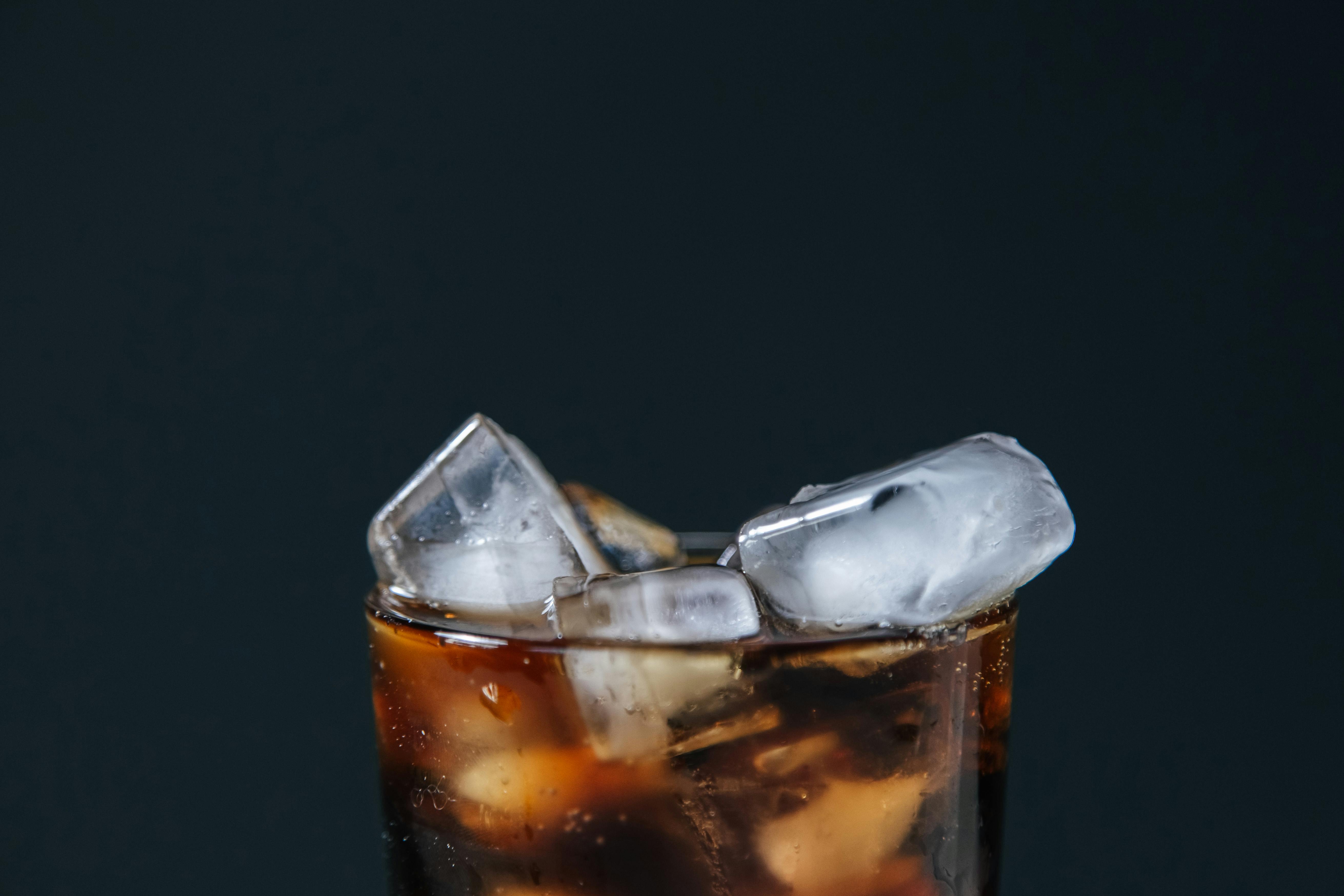
Although low in calories and sugar, diet soda has no nutritional value. It also contains artificial sweeteners that have been linked to adverse health effects, but research is mixed.
Diet soda may seem like a healthy and refreshing alternative to sugary soft drinks. However, it may not be quite as harmless as it seems, especially if you’re drinking several servings per day.
Here are 8 possible side effects of diet soda, plus some easy ways to reduce your intake.
 |
| Share on PinterestAlejandro Moreno de Carlos/Stocksy United |
1. Could disrupt gut health
The artificial sweeteners found in diet soda might negatively affect your gut microbiome, which is the community of beneficial bacteria in your digestive tract.
According to researchers, the gut microbiome plays a key role in many aspects of health, including immune function, nutrient absorption, heart health, and more.
Aspartame is one of the most common nonnutritive sweeteners in diet soda. One in vitro study of 13 individuals found that aspartame decreased production of Isobutyric acid, a type of short-chain fatty acid.
Short-chain fatty acids play a role in preventing inflammatory diseases and regulating body weight.
However, more studies are needed to understand how artificial sweeteners and diet soda may affect gut health in humans.
2. Erodes tooth enamel
Although diet soda doesn’t contain sugar like regular soda, it’s still highly acidic.
One test-tube study found that regular and diet soda significantly affected the surface roughness of tooth enamel, indicating that both can contribute to tooth erosion.
Another study suggests that diet drinks slightly increased the risk of dental erosion in U.S. adults, but further research is needed.
However, damage to dental enamel from acidity is not the same thing as an increased risk of cavities due to sugar content. A 2020 study found that diet soda did not promote dental cavities among children.
3. May cause headaches
For some people, drinking multiple servings of diet soda per day could cause headaches. This may be due to certain artificial sweeteners found in diet soda, such as aspartame.
One review noted that aspartame caused symptoms like headaches and migraines in those who took aspartame pills, particularly in those with neurological or psychiatric conditions.
However, the review notes that some of the studies used aspartame pills, which release more aspartame into the body than you would get from drinking it in liquid form.
Some studies have also found that caffeine, which is present in some diet sodas, could cause headaches for a small percentage of people.
4. Could decrease bone density
Diet soda contains several compounds that may negatively affect bone health and lead to bone loss.
One study found that excessive caffeine intake can negatively affect bone health. Another study found that excessive phosphoric acid consumption could lead to the same thing.
5. May increase risk of cardiovascular complications
One 2021 study found that regularly consuming artificial alternative sweeteners, which are present in diet soda, is associated with a risk of developing cardiovascular complications. This includes glucose intolerance and type 2 diabetes.
Another study found that consumption of these sweeteners is associated with an increased risk of metabolic syndrome. Metabolic syndrome is a group of factors that, if left untreated, may increase the likelihood of developing heart disease.
6. Might be associated with sugar cravings
Some research suggests that the artificial sweeteners found in diet soda may have the same effect on the food reward pathway in the brain as regular sugar. One study found that it can make food more palatable. This could lead to increased hunger and food intake.
Additionally, because artificial sweeteners are significantly sweeter than regular sugar, researchers have suggested they might increase sugar cravings and dependence, making it much harder to reduce your intake.
Nevertheless, research on this topic is mixed. Additional studies on diet soda and sugar cravings are needed.
7. Might be related to weight gain
Scientists have found mixed results on whether drinking diet soda is associated with weight gain.
One study found that habitual, long-term diet soda consumption was linked to increased body fat, including visceral fat. It was also linked to an increased risk of developing obesity.
On the other hand, some studies have found no association between diet soda or artificial sweeteners and body weight.
Furthermore, other studies have found that diet soda might actually lead to weight loss and decreased hunger, especially when people use it to replace sugar-sweetened beverages like soda.
More research is needed to explore how drinking diet soda might be related to body weight.
8. May be linked to type 2 diabetes
Even though diet soda doesn’t contain any calories or carbs, some research has found it’s associated with an increased risk of type 2 diabetes.
In another study, people with type 2 diabetes who used artificial sweeteners were more likely to have insulin resistance.
It’s important to note that the research behind this potential link only shows an association, so more research is needed.
Additionally, research linking diet soda consumption to type 2 diabetes is conflicted. Other studies have shown that consuming artificial sweeteners and diet soda was not associated with a higher risk of type 2 diabetes or alterations in blood sugar and insulin levels.
How To Cut Down Your Consumption
If you want to drink diet soda, it’s best to enjoy it in moderation. There are plenty of simple steps you can take to decrease your intake of diet soda.
Start by slowly swapping it for other drinks in your diet. Here are a few alternative drinks to consider:
Look for versions of these drinks that either are unsweetened or have a lower sugar content. You can also try adding a splash of juice to water or seltzer.
You can make flavored water by adding cucumber slices, fresh or frozen fruit, herbs like basil and mint, or citrus fruits like lime or lemon to plain or sparkling water for a hint of flavor without added sugar.
It may also help to buy less soda when you go grocery shopping and stock up on healthy alternatives instead. This will make it much easier to reach for a different drink in place of diet soda when you feel thirsty.
Finally, it may be easier to gradually decrease your diet soda consumption instead of cutting it out all at once. Reducing the amount of diet soda that you drink each week to make long-lasting, sustainable changes may be easier to stick with over time.
Takeaway
While diet soda is low in calories and sugar, it lacks nutrients and contains artificial sweeteners, some of which have been associated with negative health effects.
However, the research is mixed, and more studies need to be done to confirm current findings.
Fortunately, there are plenty of easy ways you can cut back on your intake to enjoy diet soda in moderation as part of a well-balanced diet.
Important Notice: This article was originally published at www.healthline.com by Rachael Ajmera, MS, RD where all credits are due. Medically reviewed by Adrienne Seitz, MS, RD, LDN.
Disclaimer
The watching, interacting, and participation of any kind with anything on this page does not constitute or initiate a doctor-patient relationship with Veripeudic.com. None of the statements here have been evaluated by the Food and Drug Administration (FDA). The products of Veripeudic.com are not intended to diagnose, treat, cure, or prevent any disease. The information being provided should only be considered for education and entertainment purposes only. If you feel that anything you see or hear may be of value to you on this page or on any other medium of any kind associated with, showing, or quoting anything relating to Veripeudic.com in any way at any time, you are encouraged to and agree to consult with a licensed healthcare professional in your area to discuss it. If you feel that you’re having a healthcare emergency, seek medical attention immediately. The views expressed here are simply either the views and opinions of Veripeudic.com or others appearing and are protected under the first amendment.
Veripeudic.com promotes evidence-based natural approaches to health, which means integrating her individual scientific and clinical expertise with the best available external clinical evidence from systematic research. By individual clinical expertise, I refer to the proficiency and judgment that individual clinicians acquire through clinical experience and clinical practice.
Veripeudic.com does not make any representation or warranties with respect to the accuracy, applicability, fitness, or completeness of any multimedia content provided. Veripeudic.com does not warrant the performance, effectiveness, or applicability of any sites listed, linked, or referenced to, in, or by any multimedia content.
To be clear, the multimedia content is not intended to be a substitute for professional medical advice, diagnosis, or treatment. Always seek the advice of your physician or other qualified health providers with any questions you may have regarding a medical condition. Never disregard professional medical advice or delay in seeking it because of something you have read or seen in any website, video, image, or media of any kind. Veripeudic.com hereby disclaims any and all liability to any party for any direct, indirect, implied, punitive, special, incidental, or other consequential damages arising directly or indirectly from any use of the content, which is provided as is, and without warranties.

